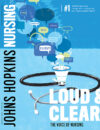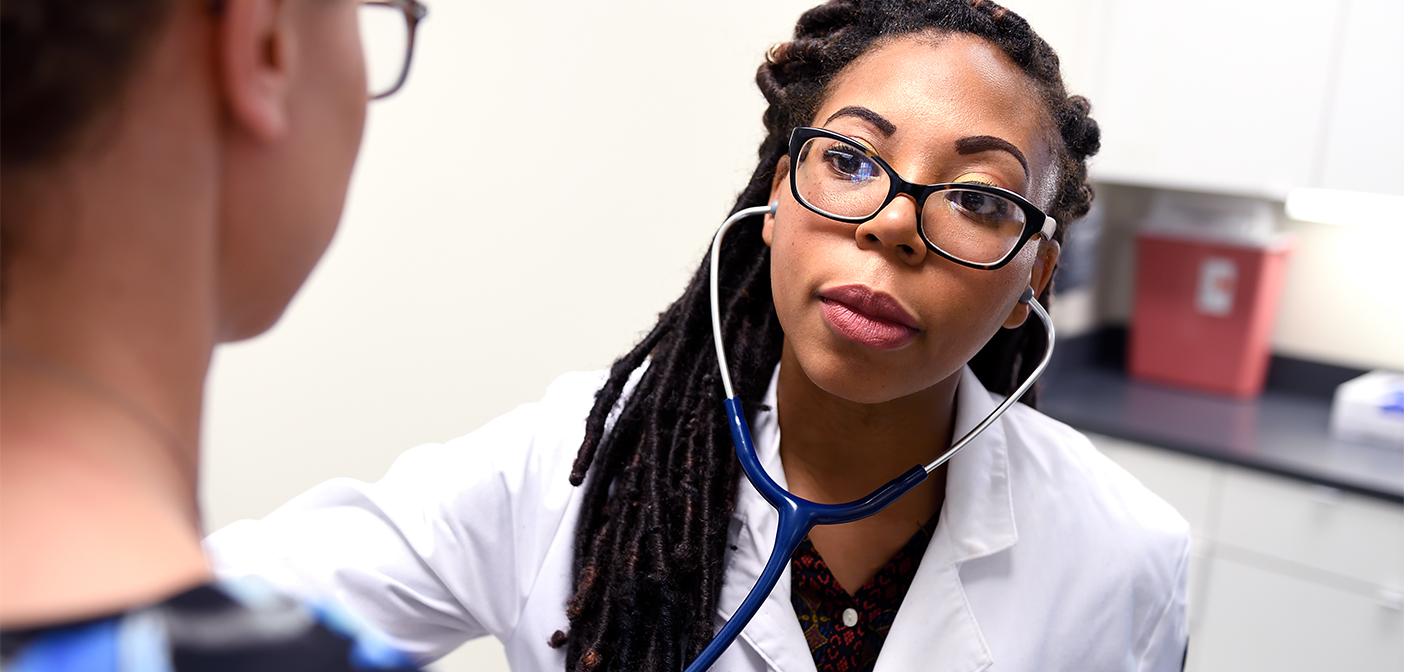Emerald Rivers cares too much to let anything get between her and people in need.
Emerald Rivers is becoming an unstoppable force for patients and providers—by degrees.
The latest confident step is joining the inaugural cohort of the Advanced Practice DNP/PhD Program, which prepares graduates to be high-level educators, clinicians, and researchers all at once, powerhouses (and warehouses) of vast nursing knowledge.
If that sounds like a lot, that’s because it is. So is Emerald Rivers, who has witnessed and is determined to remove roadblocks to quality patient care. The daughter of parents who prized education (and sister of a fellow PhD student, though one with a business/law focus), Rivers sees academic accomplishment, primary care practice, policy influence, and teaching/mentoring as the ways over, around, or through such obstacles.
Originally from Raleigh, NC, she jumped into nursing after her great-grandmother was diagnosed with Alzheimer’s disease, becoming a certified nurse assistant so that Rivers could in turn teach her grandmother to be a caregiver. She also supported nurse practitioners at a primary care office and taught in a program for medical assistants near Washington, DC, including GED classes for those who didn’t finish high school. Both jobs were eye openers.
“There were students [in DC] who were in really bad situations … socioeconomically disadvantaged. I was helping them get a job, but there was so much that I wasn’t able to help with.” As for the nurse practitioners, “They were basically where I wanted to be, able to connect people to care, to do case management, direct people to services.” Even when it really wasn’t in their job descriptions. (“I’m kind of learning that now,” Rivers laughs.)
So she joined the MSN (Entry into Nursing) Program, Black Student Nurses Association, and now the DNP/PhD, even as she cares for her grandmother, later diagnosed with Alzheimer’s as well. Rivers’ current focus is treating pain in dementia patients who cannot vocalize their own distress. One approach pairs structural magnetic resonance imaging with machine learning methods and pattern-recognition software. “You can look at brain atrophy or enlargement to see whether or not somebody actually has pain.” Rivers admits there are doubters. “Can we really parse out these changes?” She aims to find out.
Collaborations across Johns Hopkins are again opening her eyes to intersections of nursing, neuroscience, and biomedical engineering. And
to the silos being slowly broken down. “Nursing and engineering … there’s so many practical changes that could be made if these two worlds could collide.”
“To me, education is a leadership role.”
Meanwhile, Rivers is working on a legacy for those who will follow her path. Where does it go? “People are like, ‘Well you have all this education. Why don’t you take a leadership role?’ To me, education is a leadership role. I see the benefits that I can make in the lives of students, and I think it’s very important to have [minority] representation in faculty positions.”
She adds, “Just like Johns Hopkins is a global institute, I would like to be a global provider.”
Look out, world.

